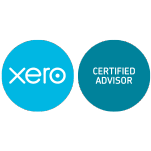Gifts & sponsorship
Individuals (whether in business or otherwise) making gifts or donations to charities may qualify for a tax credit.
Gifts generally
Generally, the person donating (the donor) is unable to claim a tax credit if they receive anything in return for donating.
Sponsorship generally
Sponsorship is when you pay to promote your business in a way that also benefits the persons or organization you are sponsoring.
According to Inland Revenue, costs for sponsorship are deductible where there is a connection between the expenditure and the business.
For Inland Revenue to accept that this “connection test” exists, you must show that your business is being promoted by incurring the sponsorship expenditure.
The following factors are taken into consideration:
- The specific terms of the sponsorship agreement. For example, a specific requirement for the recipient to promote the business, and the extent and prominence of the business exposure specified in the agreement, are both relevant.
- The place of the sponsorship arrangement in a coherent marketing strategy. For example, if a business’s market research has identified that potential customers frequently attend cultural events, then part of its marketing strategy may be to sponsor such events in return for its name and products being promoted during the event.
- The relationship between the market (or potential market) and the taxpayer’s business. For example, market exposure at a tennis tournament is directly related to the business of a sports equipment retailer.
- The relationship between the expenditure and the resulting income derived. For example, the sale of 10 tractors at an agricultural field day, by a tractor manufacturer sponsoring the event in return for being able to display the tractors, shows a direct relationship between the sponsorship expenditure and the derivation of income.
Note: The deduction for sponsorship expenditure available in any particular income year may be limited to the portion that relates to that income tax year.
Example 1
Bunty is a sole trader who operates a motor mechanic business. He sponsors the local rugby league team.
Under the terms of the sponsorship agreement, which covers the year to 31 March, Bunty agrees to pay up-front a sum of $3,000 towards the team’s running costs.
In return, the team agrees to display Bunty’s business logo on all rugby uniforms, bags, and vehicles used by the team during the year.
The cost incurred by Bunty will be fully deductible. The requirement that the team displays his business logo on the uniforms, bags, and vehicles indicates that the expenditure was incurred to promote his business and is therefore deductible.
Example 2
Suppose Bunty (from Example 1) also agreed to reimburse the team for the purchase of their van (ie the team owns the van), provided his business logo is prominently displayed on it. Alternatively, what if he instead purchased the van himself, retaining ownership of it, but allowed the team to have full use of it provided his business logo is prominently displayed on it.
Where Bunty reimburses the team for the purchase of their van, although the van is an asset it is not considered that the asset prohibition applies since Bunty does not own the van himself, nor did he acquire it. Therefore, no enduring asset results for Bunty from this expenditure.
However, if Bunty purchased the van himself and retained ownership of it, the capital prohibition would apply as the expenditure results in an enduring asset (ie, the van) owned by him. However, a depreciation deduction may be allowed.
Example 3
Jenny is in business as a scuba-diving instructor. She enjoys horse riding and watching horse riding competitions. She decides to organize a gymkhana with prizes being given to the winning rider.
She arranges for a billboard to be erected at the site of the competition with her business name, etc, on it. She expends a total of $2,000 on arranging the competition.
In this case, Jenny’s scuba-diving instructing business bears no relationship to horse riding. The attendees are not a natural audience for scuba-diving promotion to reasonably form a potential market.
This, considered with the fact of Jenny’s private enjoyment of horse riding, strengthens the conclusion that there is no identifiable connection between the expenditure and her business.
While there is some business exposure in the form of a billboard, the expenditure on the competition was likely to have been incurred for private enjoyment, with any business promotion being incidental to that private enjoyment purpose. On this basis, and in the absence of further evidence as to Jenny’s purpose in incurring the expenditure, no deduction would be allowed for expenditure on the competition.
Example 4
John is a shareholder-employee of ABC Ltd, a marine products supplier. His hobby is racing yachts. ABC purchases a yacht, which John races in various yachting competitions.
The company’s name and logo are painted on the hull of the boat. Here, a physical asset is acquired by the business, and therefore no deduction is allowed.
However, because the company’s name is displayed on the yacht, and ABC’s business of supplying marine products would be potentially promoted in a yachting competition, a depreciation deduction will be allowed. The fact that John enjoys yachting does not preclude a depreciation deduction from being allowed.
How to get started
Talk to us if you are considering sponsoring an event or sports team.
We will be pleased to assist to ensure you make the most of any tax advantages that may be available.
See Us First
• Before making any financial decisions.
• To assist you in meeting the necessary legal or financial requirements.
• If you consider that any of the issues contained in this fact sheet may affect you.


